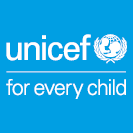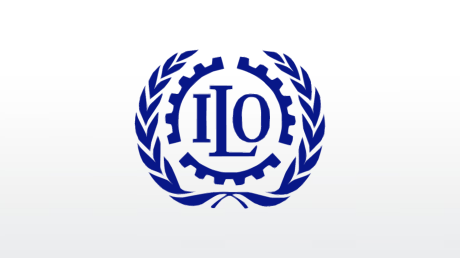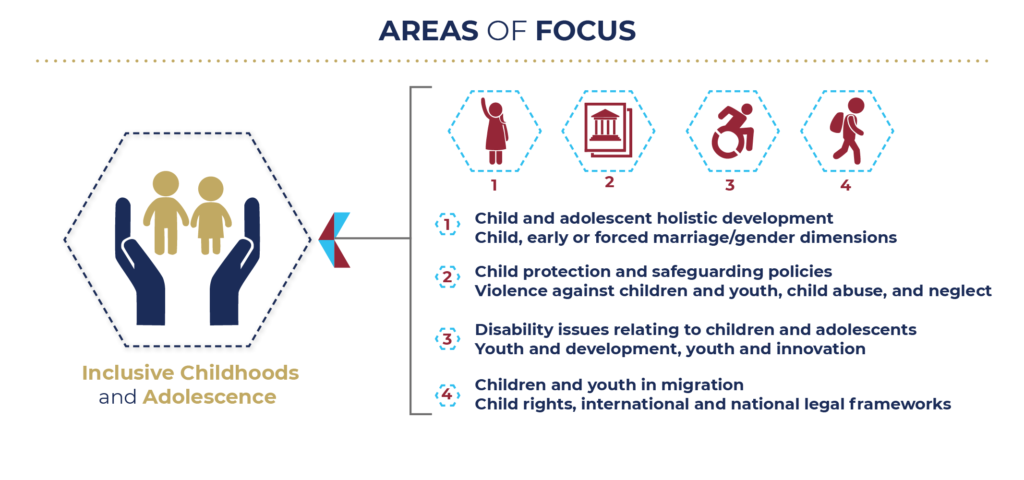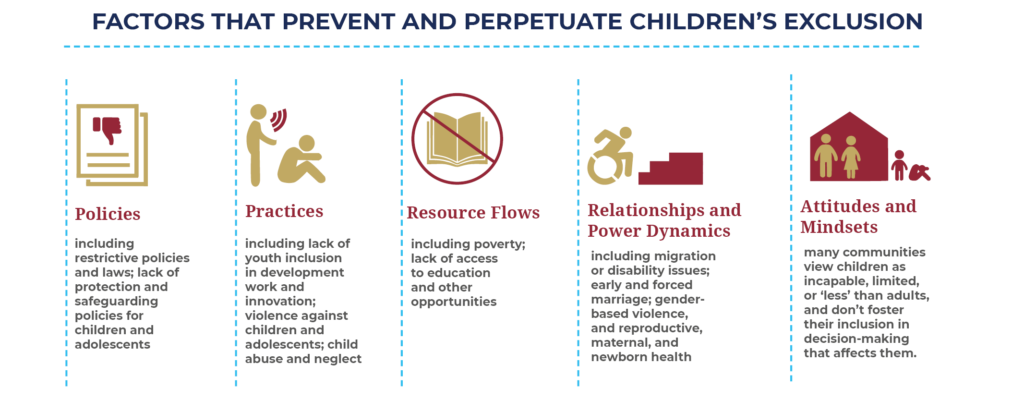Inclusive Childhoods and Adolescence
What Are Inclusive Childhoods and Adolescence?
Ensuring there is an intersection between child rights and other human rights (e.g. disability and gender rights)
Working for the rights of traditionally marginalised and excluded children in different geographical contexts – particularly in the developing regions of the world
Advocating for the inclusion of the voices of children and adolescents, to ensure they are fairly and fully represented in research
Ensuring research and interventions recognise the differences between children’s experiences (i.e. those who are migrants or living with disabilities, etc.). We must not universalise the experiences of ‘children’ as this risks the exclusion and silencing of certain groups
Ensuring that child protection and safeguarding policies are inclusive of the needs of different groups of children
Advocating for systems to change so that every child is safe, has their rights fulfilled, and has access to opportunities
Advocating for child-focused policies, research, and interventions, and ensuring access and opportunities are sensitive to the gender issues affecting children
UNICEF takes a broad definition of children’s well-being stating that: “The true measure of a nation’s standing is how well it attends to its children – their health and safety, their material security, their education and socialisation, and their sense of being loved, valued, and included in the families and societies in which they are born.” However, these aspirations are not a reality for millions of children around the world.
We work towards understanding and reducing the barriers to the inclusion of children and adolescents. We want ALL children to have access to social services, and to achieve the global standards of wellbeing as defined by UNICEF and detailed in other key documents such as the UN’s Sustainable Development Goals (SDGs).
Our researchers work in the following key areas to promote Inclusive Childhoods and Adolescence.
- Child protection and safeguarding policies
- Violence against children and youth, child abuse, and neglect
- Children and youth in migration
- Child rights, international and national legal frameworks
- Child and adolescent holistic development
- Child, early or forced marriage/gender dimensions
- Disability issues relating to children and adolescents
- Youth and development, youth and innovation
How do we Work to Increase Inclusivity for Children and Adolescents?
Includovate gathers and presents robust evidence on child rights, examines obstacles and challenges to the fulfilment of rights, and highlights opportunities for accelerating progress towards child equity.
Our work includes analysing and understanding emerging trends, opportunities, risks, and socio-economic contexts, so that we can better strategise to realise the rights of all children and adolescents. We also identify knowledge gaps related to child vulnerabilities and inequities, so that our policy and advocacy work can be better informed.
We highlight the strategic priorities for reducing disparities and achieving the national and international development goals in relation to children and women, including the SDGs.
Featured Work on Inclusive Childhoods and Adolescence
Situation Analysis of Children, Adolescents and Women in Ghana.
Includovate provided updated evidence of the situation of children, adolescents, and women in Ghana, conducting a rights-based analysis of deprivations and their causes. The report will inform decision-making, policy advocacy, and help track progress towards the realisation of rights in Ghana.
Client: UNICEF Ghana.

Toolkit for regional practitioners to help eliminate child, early and forced marriage.
Includovate produced and published a regional toolkit for practitioners to help accelerate efforts to eliminate child, early and forced marriage in the Asia-Pacific region.
Client: Plan International.

Mid-Term Evaluation to Help Eliminate Child Labour in African Supply Chains.
Includovate conducted informant interviews, focal group discussion, desk reviews and validation workshops in six countries (Côte D’Ivoire, Egypt, Malawi, Mali, Nigeria, Uganda) to inform the evaluation of ILO’s programme.
Client: ILO.

Needs Assessment, Gender analysis and Baseline study of Unemployed Youth.
Includovate provided research and technical expertise to help understand and conceptualise the needs of unemployed / underemployed youth in ten countries (Jordan, Lebanon, Malawi, Zambia, Rwanda, Uganda, Kenya, Tanzania, and Ghana).
Client: Digital Trust Fund.


